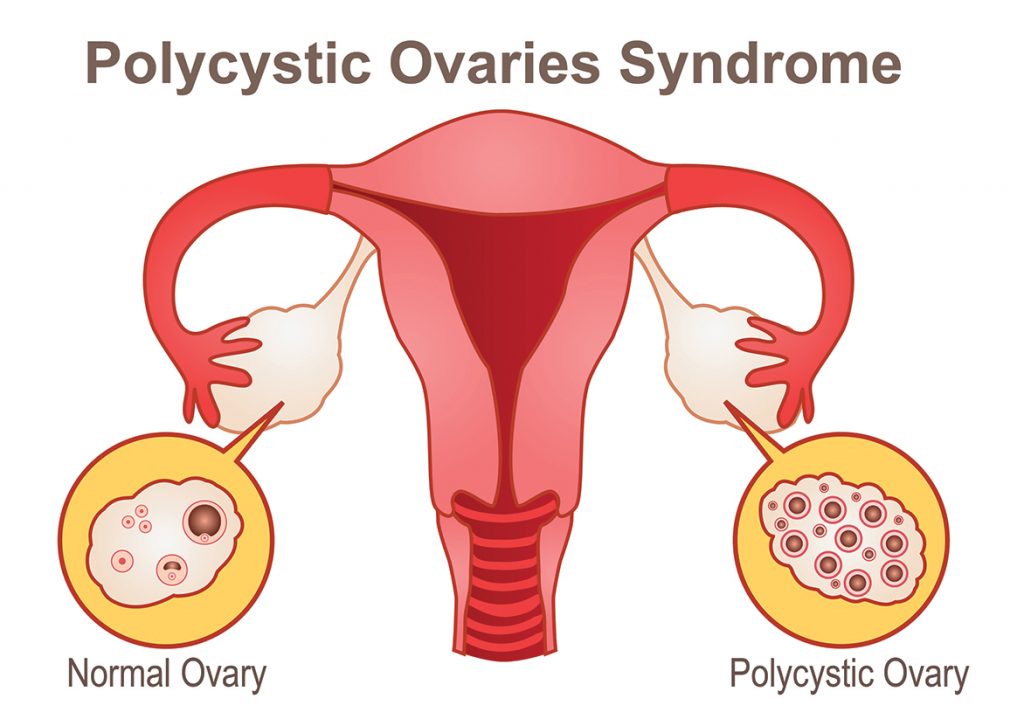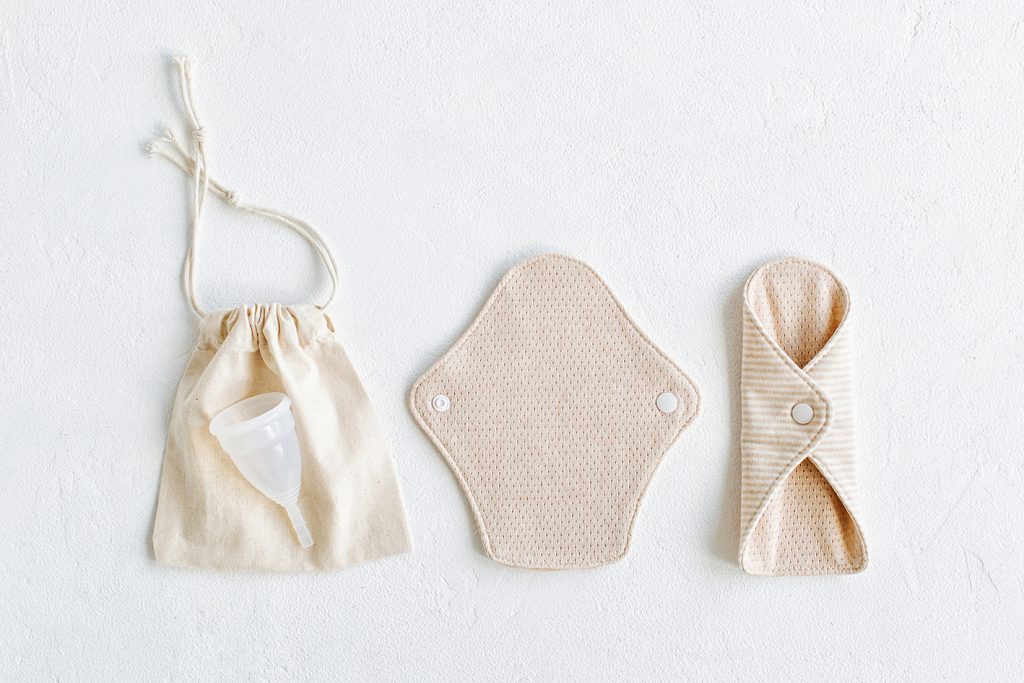How to deal with your vicious cycle like a pro.
By Ashima Sethi
So What’s Normal?
The menstrual cycle keeps important hormones in balance while also prepping the body for potential pregnancy. A normal cycle occurs every 21 to 35 days between menarche and menopause and lasts between two and eight days depending on the person. Unfortunately, no one body is the same, which means many women experience menstrual anomalies. Some are painful, some are heavy, some are irregular, but it’s imperative to pay close attention to them as they can provide important insight into what’s really going on with your body.
Menstrual Disorders
Endometriosis
When endometriosis occurs, tissue bleeds with each cycle but it has no way to exit the body and becomes trapped. As a result, surrounding tissue might become irritated leading to scarring and adhesions. This is a painful disorder that commonly involves the ovaries, fallopian tubes, and pelvis tissue, and can impact fertility if left untreated. However, once detected, there are several effective treatments available.
PCOS
People with Polycystic Ovary Syndrome (PCOS) might have a high level of male hormones, experience infrequent or prolonged periods, and have ovaries at risk of developing follicles that impact their ability to release eggs. Its cause is unknown but various factors can contribute, including having excess insulin, low-grade inflammation, and being genetically predisposed. If you suspect you have PCOS it’s crucial to consult with a doctor as complications can lead to infertility, diabetes, miscarriage, liver inflammation, metabolic syndrome, sleep apnoea, depression, anxiety, and cancers.
PMS vs PMDD
An extreme version of premenstrual syndrome (PMS), premenstrual dysphoric disorder (PMDD) affects approximately 8 percent of women and results in disabling symptoms that begin around 10 days before menstruation. In addition to physical signs like bloating, migraines, and fatigue, PMDD causes extreme mood shifts encompassing explosive anger, hopelessness, and crippling anxiety.
Doctors have yet to figure out what causes PMDD, but certain treatments can minimise symptoms, such as antidepressants, birth control pills to combat hormone imbalances, nutritional supplements such as vitamin B6 and magnesium, and lifestyle changes like doing more exercise, and cutting out smoking, alcohol, and caffeine.
People with PMDD are often misdiagnosed because symptoms are similar to those experienced by patients with bipolar disorder, anxiety disorder, depression, PTSD and more. As it remains a hugely misunderstood illness, if you suspect you have PMDD, consulting with a specialist is imperative.
Menorrhagia
Menorrhagia is the medical term for abnormally heavy periods that disrupt daily activities due to severe blood loss and pain. Other symptoms include bleeding for longer than a week, passing blood clots, and signs of anaemia such as fatigue. Many factors can contribute to menorrhagia, including hormone imbalances, ovarian dysfunction, benign and cancerous growths, pregnancy complications, and certain medications. However, the good news is doctors can provide several effective treatments. One example is birth control pills and intrauterine devices (IUD) that can reduce bleeding and pain.
Irregular Periods, But Why?
Some of the aforementioned conditions can cause irregular periods. However, other contributing causes include stress; over-exercising; uncontrolled diabetes (blood sugar impacts hormones); eating disorders (the body is not producing enough hormones to manage a cycle); and being overweight, which also impacts hormone and insulin levels. Many women who experience irregularities also have thyroid problems, which can cause heavy periods or extremely light periods. Certain medication like antipsychotics and anti-epileptics can also impact one’s menstruation.
Going Sustainable
It’s estimated that an individual will get 450 periods in their lifetime, which unfortunately means a lot of waste given the sanitary products we’re used to. Thankfully, sustainable variations are on the rise. Here’s a few if you’re looking to go green.
- Period underwear: absorbent and washable.
- Menstrual cups: insert, dump, rinse, and then reinsert. Cheaper as you only need to invest in one every few years.
- Reusable pads: environmentally-conscious, washable cloth pads. These can last up to five years.
- Biodegradable pads: created using plant-based products making them compostable.
Cycle Syncing
By definition, cycle syncing is aligning your diet, exercise, social calendar, and work commitments with your monthly cycle to give your body the support it needs in different phases of menstruation. Not a believer? Research has proved that changes in oestrogen and progesterone influences mood, energy levels, and more, so cycle synching is one way of leveraging your hormonal powers. Source: blog.daveasprey.com
- Menstrual phase (Days one to seven)
Energy levels are low; tuck into warming foods like soups and stews, omega-3 fatty acids, and iron-rich foods that will help build blood; perform yoga, Pilates and walking. - Follicular phase (Days eight to 13)
Increased energy and brain power, good time to problem solve, schedule work meetings during this time; eat foods that are high in vitamin E and provide oestrogen support; opt for HIIT workouts. - Ovulatory phase (Days 14 to 21)
Confidence levels are at an all-time high; eat more magnesium-rich foods and cruciferous vegetables to help balance out oestrogen levels; high-impact workouts and social, group exercise classes are recommended. - Luteal phase (Days 22 to 28)
Try to check off your to-do list before your energy shifts inwards; incorporate more root vegetables into your diet; do restorative exercise like stretching.
Track Your Cycle
There are a plethora of apps available that can help you track your cycle. These are some that we recommend:
- Period Tracker: this app uses emojis to help you keep track of period dates, fl ow, ovulation, and all your moods and symptoms
- Clue: helps you track all your symptoms and offers extensive resources about menstruation
- Flo: easy-to-use interface to keep track of period days, has a library of helpful resources, and its chat feature lets you ask pressing questions anonymously
Treating Yourself
Periods are rough. Thankfully, menstruation is becoming less taboo, which means more businesses are catering specifically to people during their time of the month. An example is Pass My Sweatpants (www.passmysweatpants.com), a brand offering monthly subscriptions for boxes delivered to your door filled with home-baked goods, beauty products, and other comforting goodies.










